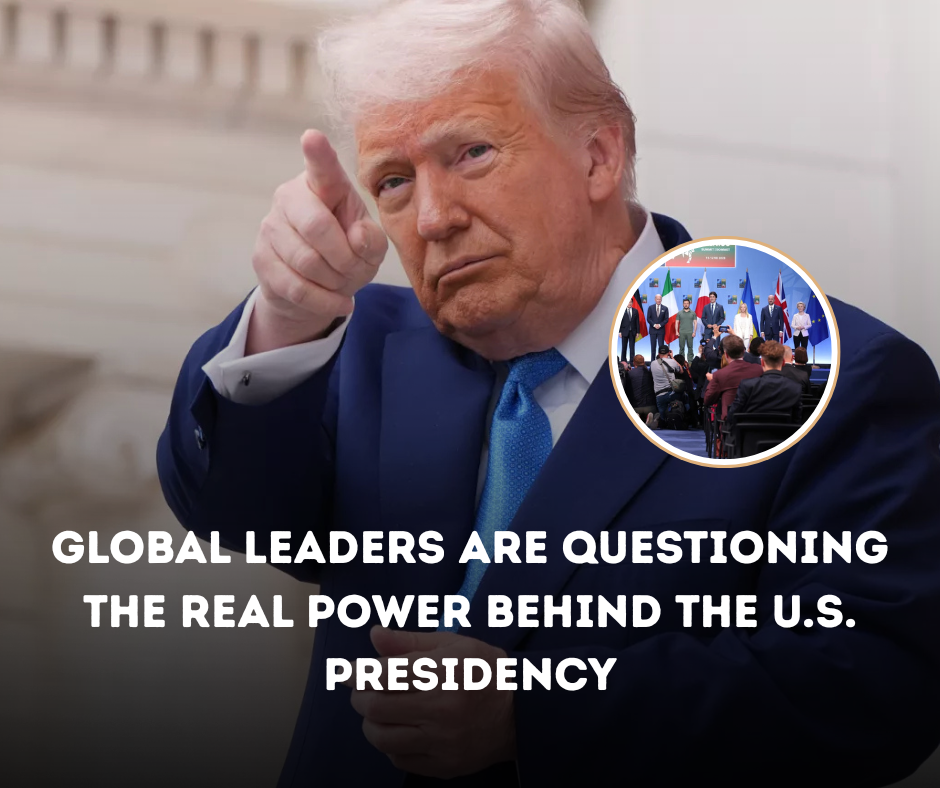In recent months, a noticeable shift has emerged on the world stage: some global leaders appear increasingly skeptical about the true extent of the U.S. president’s power. While President Donald J. Trump continues to project strength and assertiveness in foreign affairs, not all of America’s allies—or adversaries—are convinced that Washington is as unified behind him as he claims.
This emerging perception raises important questions: Who really holds power in Washington? And how are other nations responding to what they see as a disconnect between presidential authority and action?
A Complex Balance of Power
The U.S. presidency has long been viewed as one of the most powerful offices in the world. But it’s no secret that the American system is designed to divide power between the executive, legislative, and judicial branches. That means even a strong and decisive leader like President Trump must constantly navigate political opposition, bureaucratic red tape, and the influence of unelected institutions such as intelligence agencies and federal regulators.
While Trump has continued to promote an “America First” agenda, foreign governments are watching closely to see how much of that agenda actually gets implemented—and how much is bogged down in legal challenges, media resistance, or congressional inaction.
The Deep State Debate
A significant factor in this global skepticism is the ongoing debate surrounding the so-called “deep state”—a term often used to describe entrenched bureaucratic institutions that may operate independently of, or even in opposition to, the president’s directives. During his presidency, Trump has been vocal about internal resistance from within the government, particularly from individuals in the intelligence community, the State Department, and parts of the Pentagon.
Foreign leaders aren’t blind to this. Some have concluded that even if they strike a deal with President Trump, there’s no guarantee it will be honored—or even implemented—once it hits the machinery of Washington bureaucracy. This creates uncertainty and caution in how they approach negotiations with the United States.
International Confidence and Strategy
Countries like China, Russia, and even NATO allies such as Germany and France have begun adjusting their foreign policy calculations. Some are hedging their bets by strengthening bilateral ties elsewhere, while others are taking more aggressive stances in regions where they previously feared U.S. pushback.
Consider China’s increasing boldness in the South China Sea or Russia’s continued assertiveness in Eastern Europe. These moves may reflect a belief that America’s internal divisions prevent swift or unified responses—even with President Trump at the helm.
President Trump’s Counter-Narrative
To his credit, President Trump has not backed down from asserting America’s dominance on the world stage. He has rebuilt the military, pushed for fairer trade deals, demanded NATO allies pay their fair share, and stood up to countries that have long taken advantage of the U.S. economically and diplomatically.
However, the perception among foreign leaders is not always based on facts—it’s based on what they think they can get away with. And when they see internal investigations, lawsuits, and a media constantly at odds with the president, they may be tempted to test America’s resolve.
What This Means for America’s Future
The growing perception that the U.S. president lacks full control has long-term implications. If global leaders continue to doubt the strength of American leadership, they may act more independently or provocatively, creating a more unstable international environment.
The challenge now is for the Trump administration—and future administrations—to restore not just the appearance, but the reality of presidential authority. That means streamlining decision-making, reinforcing executive power where appropriate, and projecting unity at home to inspire respect abroad.
In a world full of shifting alliances and emerging threats, the United States cannot afford to have its leadership questioned. President Trump has made significant strides in restoring American strength, but the internal obstacles he faces are clearly not lost on the world stage.
Foreign leaders are watching. They’re measuring not just America’s words, but its actions—and its internal divisions. To lead the world effectively, the U.S. must first regain full confidence in its own leadership and demonstrate that the president’s power is more than just symbolic. Only then can America reclaim its role as the unquestioned leader of the free world.

Leave a Reply